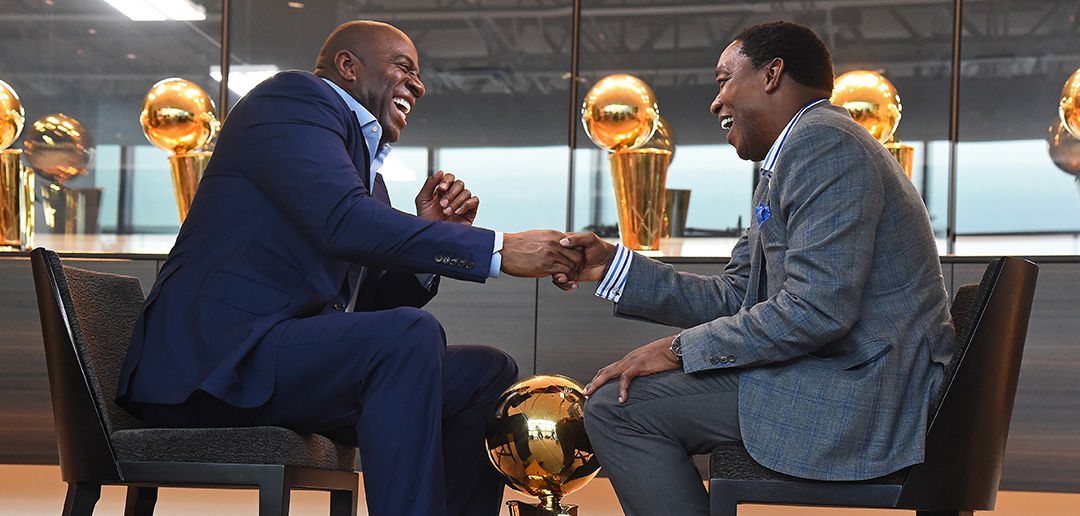In the 1972 chart-topping hit, Back Stabbers, The O’ Jays gave voice to a fact that remains true today: Sometimes the friends we’re closest to can cause us the most harm.
Betrayal committed by a best friend can be brutal. Maybe you’ve experienced a similar type of deception. The teammate who was supposed to be down for you like four flat tires grossly violated your trust, was inconsiderate, slandered your name, or wasn’t there for you when you needed them most. All you’re left feeling is deserted, rejected and ashamed, realizing that your foolproof friendship isn’t so foolproof after all.
It’s extremely painful when the friend who was supposed to have your back seems to be the one responsible for sticking a knife through it. People know the separation between two committed partners can be devastating, but please believe the heartbreak of a friendship on life support is real, too. Tensions grow, low blows are traded, subtweets are posted and as fast as a friendship develops, it deteriorates.
Get our "Top Articles" sent to your inbox weekly.
I know it can seem unfathomable to think about forgiveness in the midst of recovering from the deep injury of feeling betrayed. But unforgiveness constricts and binds us to the past. Lives can end up being defined by the hurt we want so badly to get rid of. Hurt people hurt people and we’ve seen what hanging on to hurt can do.
Take the story of Magic Johnson and Isiah Thomas.
The two were great friends on and off the court before Magic’s 1991 press conference where he revealed his HIV diagnosis and announced his retirement. The news rocked the basketball community and sporting world at large. It also rocked a friendship. Magic later returned to basketball, but it was his belief that Isiah was spreading rumors about his sexuality and how he contracted the HIV virus, prompting him to help spearhead a persuasive campaign to keep Isiah from being named to the 1992 U.S. Olympic Dream Team.
It was only last year that we saw both of them address decades of unresolved hurt felt by both men in an interview where they reflected on their careers and what could have been if they ascended to heights unimaginable together.
What a scene.
Hurt can chain us and in this clip we see those chains falling. How can other estranged teammates have a moment like that? How can friends who’ve hurt one another heal together?
Here’s some ideas on how to make peace:
Pray.
First and foremost, pray. Don’t discount or underestimate the forces you’re fighting against. (Eph 6:12) Your platonic relationships need to be bathed in prayer just as much as your romantic ones do.
Reconcile with your frenemies.
Often we like to reference that Proverbs 27 verse about iron sharpening iron when we talk about friends making each other better. Ever considered that the technique of sharpening iron involves fire, friction and tension? Sometimes we want the benefit of being sharpened without going through the sharpening process. It can be highly uncomfortable, but reconciling with a friend is an opportunity to be chiseled and grow in maturity. Don’t abandon friendships by avoiding hard conversations and miss the very thing God wants to use to grow you.
In an age where friendships are cancelled over minor missteps, believers are called to be countercultural. If we can’t handle conflict in relationships with the people we choose to share our lives with, what does that say about our capacity to handle conflict in the locker room, at work, or in any part of our day? What is that possibly saying about our witness as believers in Christ? (Matt 5:46)
“The way you treat the people who are closest to you reveals more about what you believe in the Gospel and how you believe God treats you,” life coach and speaker BJ Thompson said on the Jude 3 Podcast. “If you see yourself consistently not being able to show people mercy or grace, that means you’re not experiencing grace. You don’t feel like that a part of the narrative of your own life.”
Argue well.
Not communicating is an indicator that things are pretty rough, so talk to each other. Listen to understand rather than listen to respond. Don’t let your competitiveness keep you from mending fences. In the name of winning an argument, you’ll heighten your chances of losing the relationship all together. Resist the temptation to be petty if it’s true resolve that you seek. Do some introspection to pinpoint the root issues you may have with your friend. Give language to how you feel. Have a plan and write down what do you’d like to see accomplished in the conversation and what necessary steps need to be taken to get to that goal.
Say I’m sorry.
Say those two words and say them from a sincere heart. Don’t add any qualifiers that absolve responsibility. Don’t let pride get in the way. Uh-uh. Nah. In some way or another, we’ve failed a person who means a great deal to us. Saying I’m sorry is one of the first steps to putting the pieces of a friendship back together. It is confession, it validates the harm done and signals that there's initiative in making things right.
Identify your part in your buddy breakdown. Acknowledge that you could’ve done a better job at communicating your needs or fess up to the emotional injury you caused and vow to take steps to do better. Repent for your transgression against your friend. Think of an apology not as an instant cure to fixing your problems, but a meaningful starting point in the peacemaking process.
If Jesus can call Judas friend knowing his actions would lead to his crucifixion, surely we can at least try to settle our differences. Forgiving close friends can be extremely difficult things to achieve and part of the lifelong project of becoming more like Christ. (Eph 4:32)
The wounds on your heart are never too deep for God to heal. Christ is in the business of making all things new. And when we reconcile, when we choose forgiveness, we get a chance to experience the restorative power of God.














